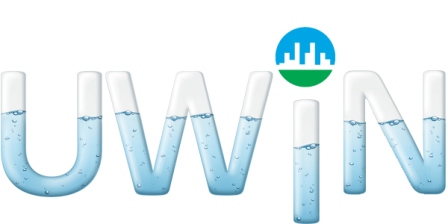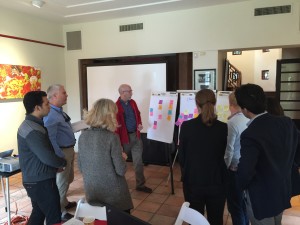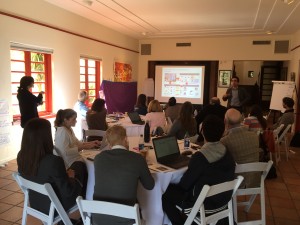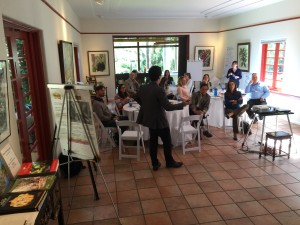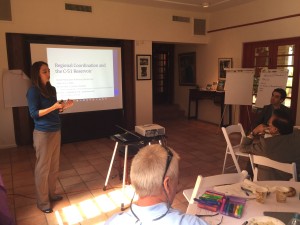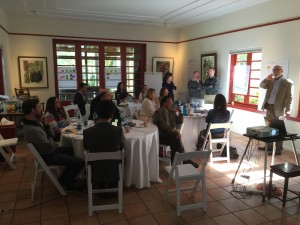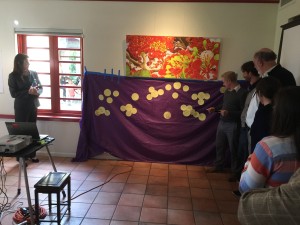2016 Southeast Florida Stakeholder Engagement Workshop
Understanding water challenges, success stories, and potential solutions
Date: 8:30a – 4:30p, 2/10/2016
Location: The Kampong Botanical Garden, 4013 Douglas Rd, Miami, FL 33133
The overall UWIN goals are to help build a network of people concerned with urban water sustainability. A national framework will be developed guided by regional input. The goal of the 2016 stakeholder engagement meeting goal is to help regions convene a small network of experts (regional advisory committee), introduce UWIN and national framework, begin to identify solutions, concerns, needs within regions and how UWIN research can assist; and begin to grow the network.
Meeting Agenda
Continental Breakfast
Pre-workshop survey
- Assess baseline understanding of water challenges and reasons for participation
- A pre-workshop survey will be distributed as participants enter the meeting to assess baseline understanding of water challenges in the region and motivation for participation.
Welcome
- High level overview of the workshop
- Logistics
[Self] introductions
- who you are and whom are you with
Impromptu Networking
Jump start network building/new relationships
- What is your role in urban water sustainability?
- What is a big challenge in urban water sustainability that you see?
Break
Small group discussion
Questions to frame discussion:
- What are your main water sustainability challenges?
- What could UWIN learn from your region for application elsewhere? What can be put into the Blueprint for other regions to learn about?
- What is the nature of the conversation and coordination occurring in your region around sustainable water issues?
- What do you think of our blueprint and indicators
Introduce the UWIN project
The UWIN, national framework, research and approach, network, and blueprint
Guided conversation
- SE FL water future and how UWIN can provide useful information
- What SE FL can offer?
Motivation to participate in UWIN engagement activities
Understand drivers for participation and what people are hoping from the UWIN network. Questions to guide discussion:
- Why did you decide to participate?
- How can UWIN serve stakeholders in the SE FL region?
- For example, linking with UWIN experts, help you learn from peers, inform our research activities, data needed to help you implement actions toward desired water targets
Social networking mapping activity
- Build a network
- Expand the network
- What are effective ways to foster interaction?
Break
Discussion
Next steps; Closing remarks
- What would you like to see happen with this network?
- What are the best practices to stay engaged and stay informed with UWIN activities.
- How would you like to learn from peers across regions?
Post-workshop survey
Post workshop assessment: a post-workshop survey will be distributed at the end of the meeting after the closing remarks, reaction to framework and indicators
The UWIN 2016 Southeast Florida Stakeholder Advisory Committee (SAC) Meeting was a productive and enjoyable experience. In addition to having an opportunity to briefly describe the UWIN project to meeting participants, the UWIN team appreciated the valuable feedback that was provided and the insights that were shared about Southeast Florida’s complex water system by SAC members. After reviewing and summarizing our meeting notes, we have organized the meeting outcomes into three broad categories: major concerns identified, shared success stories, and information needs of stakeholders.
Concerns
Participants shared their concerns about the future of Southeast Florida water systems.The major concerns that were identified can be categorized into four themes: impacts, governance, communications, and development. In terms of impacts, concerns about maintaining water quality and quantity, drainage, and stormwater management, under conditions of increasing sea levels and storm surge risks dominated the discussion. Questions about how to incorporate uncertainties about future regional population (or customer base) and likely increases in competition for resources between different sectors (due to potential sea level rise impacts) into planning were also raised.
- Major concerns related to governance included jurisdictional issues, diversity in regulatory environment between adjacent counties, and difficulties implementing solutions like One Water due to the lack of uniformity in regional regulations. Challenges presented by the disconnect between regulatory and hydrological boundaries were discussed.
- Questions about how to improve communications between water professionals and the public, technical staff and decision makers, and scientists and decision makers were presented. Limitations in communications were associated with barriers to achieving behavioral change and sustainable management outcomes.
- The ongoing challenge of balancing economic development and natural resource protection and management was described as a major concern. Participants also questioned how to maintain public support throughout transitional periods and project development lifetimes.
Success stories
SAC members provided insights into what is working well in the region by sharing some positive achievements. Examples of success stories that were shared included:
- The Southeast Florida Climate Change Compact as a consistent voice to argue for policy and resources; participants talked about the substantial resources that have been obtained to support Compact efforts (including federal and private funding sources). One particular example is the Shoreline Resilience Working Group, which has been moving its major agendas forward.
- Major improvements in water conservation have been achieved.
- Miami Beach unanimously passed land management measures, including development of sea walls, living shorelines, demonstration parks, and raising of streets.
- Technical modeling efforts of groundwater/surface water interactions, salt water intrusion, and storm surge have been successfully completed.
- Engagement of diverse communities (including the real estate community) in discussions on planning and preparation for short- and long-term adaptation and resiliency, including for example, the design of elevated water and wastewater infrastructure and the modification of zoning codes to require things to be built higher. This discussion has enhanced receptivity to adaptation.
- Securing support for additional resources/funding for local sustainability projects.
- The C-51 reservoir project development process as an example of getting buy-in across diverse and high-stakes stakeholder groups, collaboration, and cost sharing.
Information needs
SAC members also shared perspectives on information that is needed to support sustainability efforts that UWIN might be able to help with. Examples included:
- Climate science-based information including actionable guidance on climate change and skill in projections is needed by regional stakeholders.
- Tools that demonstrate economic savings derived from resiliency investments via risk reduction need to be created and expanded
- Due to the scale of regional challenges, new investment strategies are needed, especially those that target both immediate and long-term needs
- New financing models are needed for modify/maintain legacy infrastructure and for long-range infrastructure development for the more distant future.
Photos
The day before the stakeholder workshop, a training workshop for the UWIN faculty, researchers, and students was conducted to develop a common understanding of the vision, mission and desired outcomes of the network activities, In the photo below, the group contributed to the conversation by providing suggestions.
Dr. Ali Mostafavi of FIU presented a brief overview of his infrastructure related research at the meeting.
Dr. Jennifer Jurado presented a success story on integrated water supply/stormwater control planning in the region.
Dr. Gary Pivo of University of Arizona (UWIN Deputy Director) facilitated a discussion on regional water challenges and solutions.
The group used an interactive process to map out the approach for engaging the broader water stakeholders in the region.
